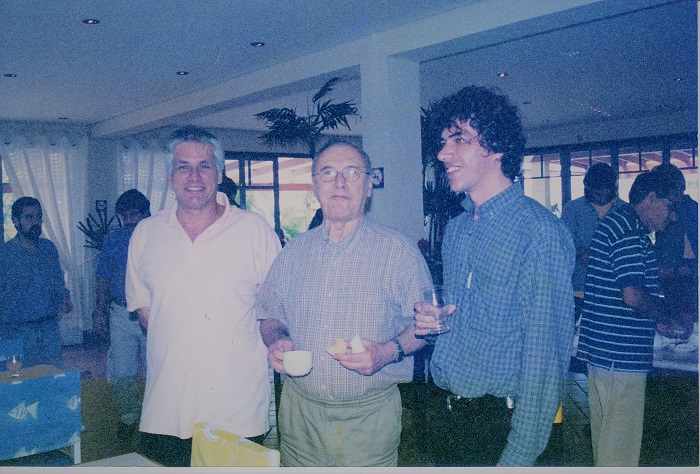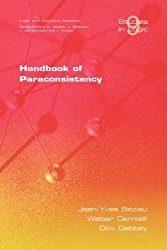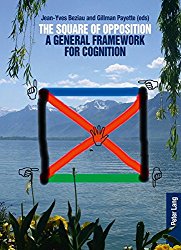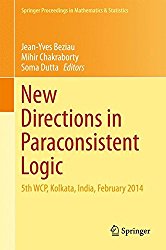|
 With Newton da Costa and Arthur Buchsbaum at the
With Newton da Costa and Arthur Buchsbaum at the
2nd World Congress on Paraconsistency in Juquehy, Brazil, 2000
More recently I have been working on some three-valued paraconsistent logics in which neither p,¬p ⊢ q nor ¬(p&¬p) is valid, I call them genuine paraconsistent logics.
On the philosophical side I have been developing a theory of concepts according to which most of the concepts can be considered as paraconsistent (and at the same time paracomplete, i.e. paranormal). This can be expressed by the equation "Cats are not cats". Big cats like Siberian Tigers are indeed cats in some sense but they are not like domestic cats.
Facing pussy cats, you also have someone like Felix the cat, a small cat (size does not matter!), who is not a real cat, but a product of imagination.
3) How do you see the evolution of paraconsistent logic? What are the
future challenges?
I think one major problem of paraconsistent logic, like in fact with other non-classical logics or logic itself as it is nowadays,
is the lack of connection between the philosophical and the mathematical sides. Logic is very interesting exactly because it can link both sides,
but the danger is to have something which ultimately is both philosophically and mathematically trivial. You end up with gaps rather than with guts ...
On the mathematical side we have many different logical systems, built using different techniques, used also for the development of other logics:
logical matrices, sequent systems, possible worlds semantics, etc. There is not a proper technique that has been created and motivated for/by paraconsistency.
And there is a lack of unification, no general theory of paraconsistent logical systems. It would be great to have such a theory.
On the philosophical side we still need good intuitive motivations supporting the idea of paraconsistent negation. It cannot only be a negationist approach, rejecting the ex-contradictione sequitur quodlibet. We need postive ideas and we have to come back to the fascinating question of what is the basic law of thought and/or reality, if any. All the rest is fashionable sophistry, neo-pleonasmatically speaking.
|



